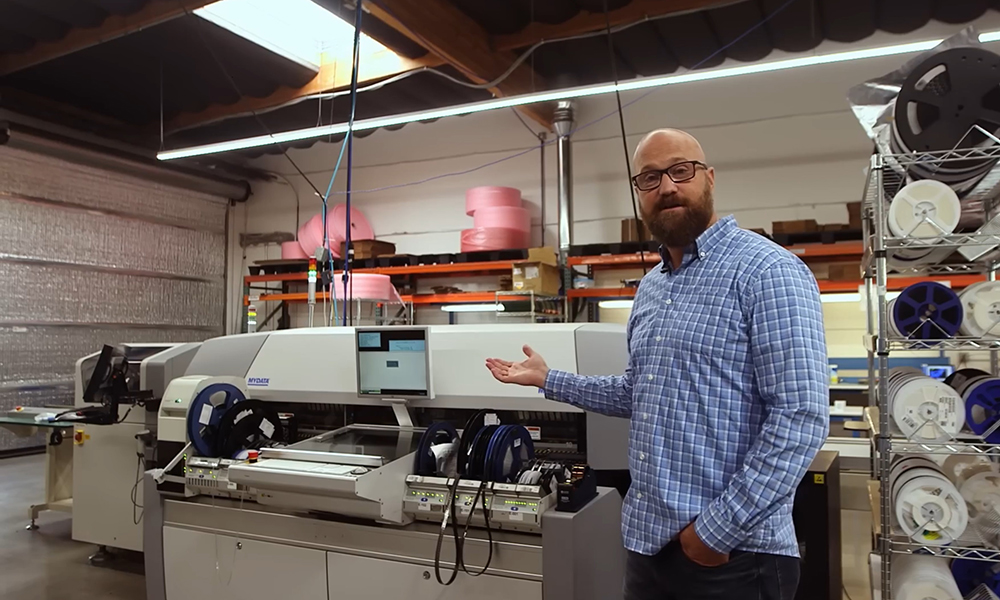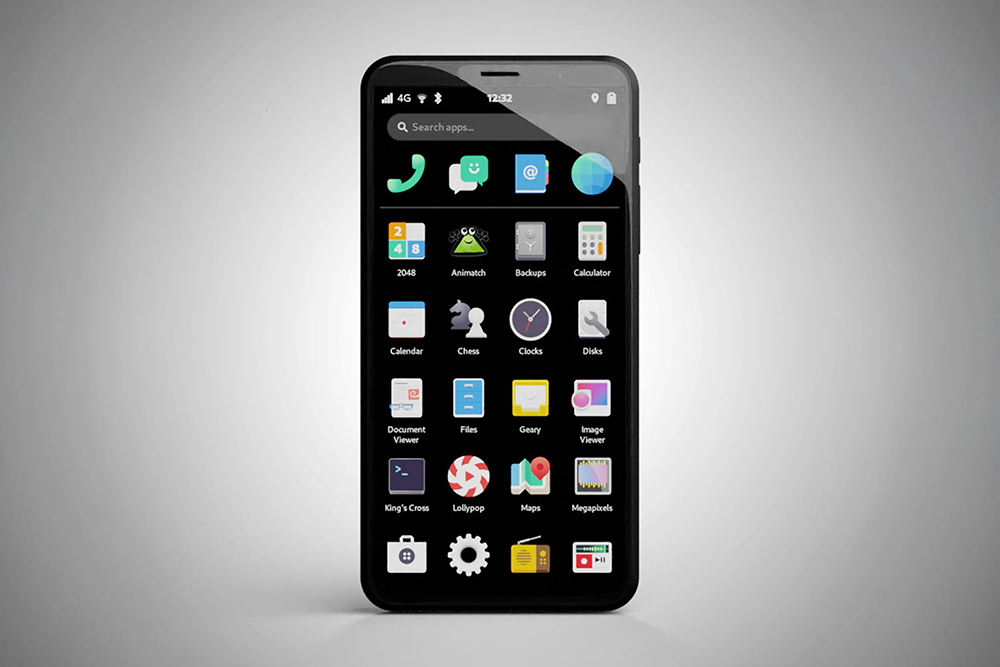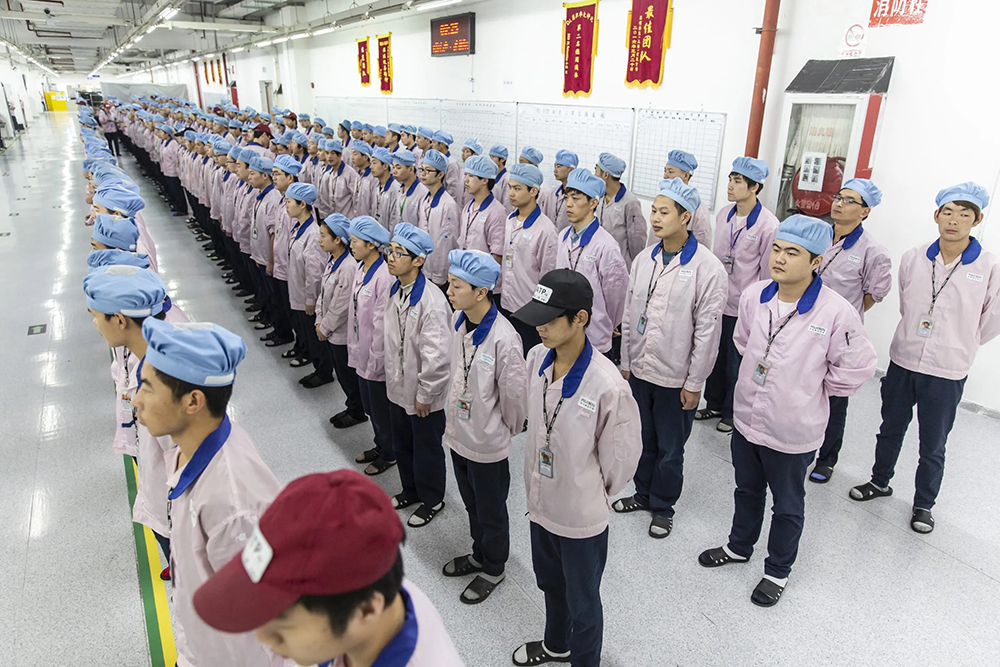
托德·韦弗向正面临美国总统唐纳德·特朗普施压、要求将部分智能手机生产迁回美国的苹果公司传达了一则重要信息:切莫轻信那些老生常谈。
长期以来,专家们一直认为,苹果公司若不在亚洲而是在美国生产iPhone,从物流层面而言根本无法实现,且成本会高到令人咋舌。然而,韦弗认为,倘若企业能有数年时间应对那些难以避免的复杂状况,确实有可能成功达成这一目标,而且成本与在亚洲生产相差无几或仅略高。
韦弗有资格发表意见:他的初创企业Purism是为数不多的、甚至可能是唯一一家在美国本土组装智能手机的企业。事实上,“美国制造”的血统正是该公司主打设备——Liberty Phone的核心卖点。
韦弗承认:“在美国达成这一目标极具挑战性,或许正因如此,目前只有我在做这件事。”不过,他表示自家公司已成功实现这一目标,且过去两年持续盈利,从而为这个常被政治口号与既得利益主导的热点话题提供了现实案例。
美国总统唐纳德·特朗普近期将美国智能手机生产问题推至舆论焦点,作为其全球贸易战的一部分。5月23日,他通过社交网络“真相社交”(Truth Social)公开抨击苹果公司从国外进口iPhone至美国,而非在美国本土生产,并威胁称,如果苹果公司持续这样做,将对其征收25%的关税。
鉴于特朗普朝令夕改以及第三方的法庭挑战,这些进口税是否会成为永久性措施尚不明朗。
然而,苹果公司长期以来一直在海外(主要在中国)组装iPhone,且始终拒绝将任何生产环节迁移至美国。今年4月,当特朗普宣布加征关税时,苹果公司甚至将大部分面向美国市场的iPhone采购转向印度,原因在于该国进口关税较低。在公开场合,苹果公司从未提及在美国本土组装iPhone的可能性。此前,苹果公司首席执行官库克解释称,海外丰富的熟练劳动力和顶尖供应商资源难以在美国本土复制。
诚然,韦弗的公司无法与苹果公司相提并论。自2007年推出首款iPhone以来,苹果公司已在全球售出超20亿部iPhone。这些设备引领科技行业迈入全新时代,让移动设备成为核心焦点。
相比之下,据韦弗称,Purism自2018年推出首款机型以来,仅售出数万部手机,且该公司在科技爱好者圈子之外几乎无人知晓。
其在圣迭戈附近生产的Liberty Phone搭载了美国制造的电子元件,安装在来自中国的金属机身上,该机型零售价为1999美元。另一款手机Librem 5设计基本相同,不过采用中国零件且在中国制造,售价为799美元。
该公司还生产平板电脑、笔记本电脑和服务器。

该公司将其“美国制造”机型定位为比苹果公司等主流厂商产品更安全、更注重隐私保护的选择。由于所有关键零部件和组装环节均在美国本土完成,故而极易验证设备未被试图监听或植入爆炸物的外国对手篡改。
这些手机搭载的是基于Linux的开源操作系统,任何具备技术知识且担心安全问题的用户,均可审查其源代码——这与更主流的手机不同,后者搭载的操作系统难以轻易进行审查。
此外,Purism手机配备三个物理开关,用户可借此断开设备的蜂窝网络、Wi-Fi、蓝牙连接,还能关闭麦克风和摄像头。韦弗表示,当这些开关被打开时,它们会切断所控制功能的电路,使黑客无法访问这些组件。他指出,主流手机常用的“飞行模式”安全性较低,因为这纯粹是软件功能,无法切断设备芯片的电源。
尤为注重安全的客户可额外付费,为其设备在运输时选用“防拆封胶带”等包装形式,以此标记运输途中的任何异常操作。
Purism的主要客户是政府机构,其中许多机构对安全性要求极高,以及个人消费者。韦弗称,该公司的客户包括联邦调查局和众议院情报委员会。
韦弗表示,尽管Purism的两款手机分别在海外和本土生产,但制造成本大体相当。中国制造的机型在零部件、制造和组装方面的成本约为600美元,而美国制造的机型则为650美元。
韦弗表示,基于自动化程度考量,“中美两国生产商品的成本差异在正负10%以内”。
两款手机售价存在差异,部分原因在于Purism对美国制造机型设定了更高的利润率。韦弗指出,那些追求更高安全性的用户,通常愿意为此支付溢价。这也覆盖了部分客户要求验证供应链安全性所产生的额外管理成本,以及美国制造带来的少量附加成本。
解决技能短缺问题
Purism的组装线位于加利福尼亚州卡尔斯巴德,最多配备十几名工人负责设备组装。由于当地国防工业和其他移动运营商的制造业基础,该地区拥有大量熟练劳动力。
这条规模相对较小的组装线,与由合同制造商运营、且大多位于中国的iPhone工厂形成了鲜明对比,那些工厂规模堪比数个足球场,员工数量超10万,且实行24小时轮班制。
韦弗指出,在熟练工人方面,美国较中国存在显著劣势,而这类人才在智能手机工厂劳动力中占据相当大的比例。他认为,要扭转人才短缺局面并为企业生产回流奠定基础,唯一途径就是鼓励更多人掌握制造业实用技能。
韦弗表示:“如果你去中国,会看到一栋栋大楼里汇聚着成千上万的电子工程师;而在美国,你可能总共只能找到5个。”

韦弗表示,例如,苹果公司若在2026年突然需要扩大美国员工规模以生产数百万部iPhone,可能会面临灾难性后果。为如此庞大的生产计划培训足够的人手需要耗费数年时间。
韦弗表示,成立于2014年的Purism历经数年才建立起国内供应链。由于公司规模较小,零部件需求量有限,因此无法通过大规模生产设备来实现规模经济效益。在美国制造的成本也高于中国。不过,借助自动化技术,通过将人力保留到生产完成后的焊接、组装、维修和测试等环节,这些额外成本得以控制在最低水平。
韦弗指出,另一方面,苹果公司则需要大量零部件来维持组装线运转。虽然该公司极有可能与国内供应商达成协议,采购大部分iPhone零部件,但某些零件(如高质量摄像头)可能无法在美国迅速采购,必须进口。
一位分析师曾表示,考虑到额外成本及诸多麻烦,若在美国生产iPhone,其售价可能高达3500美元。韦弗认为,如果苹果公司必须迅速转移生产,在美国生产iPhone的成本将大幅攀升。但若给予足够时间,通过开发新供应链、招募足够多的工人并借助广泛的自动化手段,苹果公司能够大幅降低成本。
超越细分市场
韦弗表示,对于苹果公司而言,开设国内制造工厂是一个需耗时数年的漫长过程。这也是他批评特朗普的关税政策几乎立即生效的原因。尽管此后诸多关税已被推迟。但对企业而言,这意味着它们无法提前规划。然而,将生产转移到美国这样复杂的事情恰恰需要提前规划。
韦弗表示,如果特朗普的关税政策分多年逐步实施,效果将会更佳。在这种情况下,企业将有明确且不断增强的动力推动生产回流,而非立刻遭受惩罚。
韦弗认为,他在美国的制造实践已初见成效,而且随着时间推移,会获得更大的发展动力。他希望最近涉及美国官员使用聊天应用Signal讨论对也门发动军事打击、却意外邀请一名记者加入的丑闻,能促使联邦政府更加重视安全问题,进而推动产品销量提升。
韦弗并未披露Purism的财务细节,仅表示该公司年营收达数百万美元,并在2023年实现盈利,其最畅销产品为Liberty Phone。
市场研究公司TechInsights的分析师韦恩·拉姆(Wayne Lam)对Purism的前景作出折中评价。他在一封邮件中表示:“它们或许能成为成功的细分市场参与者,但鉴于大品牌占据主导,成功的几率较低。他们无法在消费市场竞争,但政府/企业/军方都是他们可以瞄准的细分市场。”
为拓展业务版图,韦弗正谋求在过去数年获得的1600万美元融资基础上,进一步筹集资金。其中部分资金将用于弥补其手机的短板。鉴于该手机未采用苹果的iOS或谷歌的安卓(Android)操作系统,导致其与诸多热门移动应用(如优步(Uber))存在兼容性问题,为让这些应用能在其设备上运行,Purism必须针对每个应用进行技术调整。
Purism至少能宣称相较于主导智能手机行业的巨头,具备一项微弱优势。如果特朗普的关税成为永久性措施,其美国制造机型受影响程度较小,而大型厂商及其在国外制造的设备则可能遭受重创。(财富中文网)
译者:中慧言-王芳
托德·韦弗向正面临美国总统唐纳德·特朗普施压、要求将部分智能手机生产迁回美国的苹果公司传达了一则重要信息:切莫轻信那些老生常谈。
长期以来,专家们一直认为,苹果公司若不在亚洲而是在美国生产iPhone,从物流层面而言根本无法实现,且成本会高到令人咋舌。然而,韦弗认为,倘若企业能有数年时间应对那些难以避免的复杂状况,确实有可能成功达成这一目标,而且成本与在亚洲生产相差无几或仅略高。
韦弗有资格发表意见:他的初创企业Purism是为数不多的、甚至可能是唯一一家在美国本土组装智能手机的企业。事实上,“美国制造”的血统正是该公司主打设备——Liberty Phone的核心卖点。
韦弗承认:“在美国达成这一目标极具挑战性,或许正因如此,目前只有我在做这件事。”不过,他表示自家公司已成功实现这一目标,且过去两年持续盈利,从而为这个常被政治口号与既得利益主导的热点话题提供了现实案例。
美国总统唐纳德·特朗普近期将美国智能手机生产问题推至舆论焦点,作为其全球贸易战的一部分。5月23日,他通过社交网络“真相社交”(Truth Social)公开抨击苹果公司从国外进口iPhone至美国,而非在美国本土生产,并威胁称,如果苹果公司持续这样做,将对其征收25%的关税。
鉴于特朗普朝令夕改以及第三方的法庭挑战,这些进口税是否会成为永久性措施尚不明朗。
然而,苹果公司长期以来一直在海外(主要在中国)组装iPhone,且始终拒绝将任何生产环节迁移至美国。今年4月,当特朗普宣布加征关税时,苹果公司甚至将大部分面向美国市场的iPhone采购转向印度,原因在于该国进口关税较低。在公开场合,苹果公司从未提及在美国本土组装iPhone的可能性。此前,苹果公司首席执行官库克解释称,海外丰富的熟练劳动力和顶尖供应商资源难以在美国本土复制。
诚然,韦弗的公司无法与苹果公司相提并论。自2007年推出首款iPhone以来,苹果公司已在全球售出超20亿部iPhone。这些设备引领科技行业迈入全新时代,让移动设备成为核心焦点。
相比之下,据韦弗称,Purism自2018年推出首款机型以来,仅售出数万部手机,且该公司在科技爱好者圈子之外几乎无人知晓。
其在圣迭戈附近生产的Liberty Phone搭载了美国制造的电子元件,安装在来自中国的金属机身上,该机型零售价为1999美元。另一款手机Librem 5设计基本相同,不过采用中国零件且在中国制造,售价为799美元。
该公司还生产平板电脑、笔记本电脑和服务器。
该公司将其“美国制造”机型定位为比苹果公司等主流厂商产品更安全、更注重隐私保护的选择。由于所有关键零部件和组装环节均在美国本土完成,故而极易验证设备未被试图监听或植入爆炸物的外国对手篡改。
这些手机搭载的是基于Linux的开源操作系统,任何具备技术知识且担心安全问题的用户,均可审查其源代码——这与更主流的手机不同,后者搭载的操作系统难以轻易进行审查。
此外,Purism手机配备三个物理开关,用户可借此断开设备的蜂窝网络、Wi-Fi、蓝牙连接,还能关闭麦克风和摄像头。韦弗表示,当这些开关被打开时,它们会切断所控制功能的电路,使黑客无法访问这些组件。他指出,主流手机常用的“飞行模式”安全性较低,因为这纯粹是软件功能,无法切断设备芯片的电源。
尤为注重安全的客户可额外付费,为其设备在运输时选用“防拆封胶带”等包装形式,以此标记运输途中的任何异常操作。
Purism的主要客户是政府机构,其中许多机构对安全性要求极高,以及个人消费者。韦弗称,该公司的客户包括联邦调查局和众议院情报委员会。
韦弗表示,尽管Purism的两款手机分别在海外和本土生产,但制造成本大体相当。中国制造的机型在零部件、制造和组装方面的成本约为600美元,而美国制造的机型则为650美元。
韦弗表示,基于自动化程度考量,“中美两国生产商品的成本差异在正负10%以内”。
两款手机售价存在差异,部分原因在于Purism对美国制造机型设定了更高的利润率。韦弗指出,那些追求更高安全性的用户,通常愿意为此支付溢价。这也覆盖了部分客户要求验证供应链安全性所产生的额外管理成本,以及美国制造带来的少量附加成本。
解决技能短缺问题
Purism的组装线位于加利福尼亚州卡尔斯巴德,最多配备十几名工人负责设备组装。由于当地国防工业和其他移动运营商的制造业基础,该地区拥有大量熟练劳动力。
这条规模相对较小的组装线,与由合同制造商运营、且大多位于中国的iPhone工厂形成了鲜明对比,那些工厂规模堪比数个足球场,员工数量超10万,且实行24小时轮班制。
韦弗指出,在熟练工人方面,美国较中国存在显著劣势,而这类人才在智能手机工厂劳动力中占据相当大的比例。他认为,要扭转人才短缺局面并为企业生产回流奠定基础,唯一途径就是鼓励更多人掌握制造业实用技能。
韦弗表示:“如果你去中国,会看到一栋栋大楼里汇聚着成千上万的电子工程师;而在美国,你可能总共只能找到5个。”
韦弗表示,例如,苹果公司若在2026年突然需要扩大美国员工规模以生产数百万部iPhone,可能会面临灾难性后果。为如此庞大的生产计划培训足够的人手需要耗费数年时间。
韦弗表示,成立于2014年的Purism历经数年才建立起国内供应链。由于公司规模较小,零部件需求量有限,因此无法通过大规模生产设备来实现规模经济效益。在美国制造的成本也高于中国。不过,借助自动化技术,通过将人力保留到生产完成后的焊接、组装、维修和测试等环节,这些额外成本得以控制在最低水平。
韦弗指出,另一方面,苹果公司则需要大量零部件来维持组装线运转。虽然该公司极有可能与国内供应商达成协议,采购大部分iPhone零部件,但某些零件(如高质量摄像头)可能无法在美国迅速采购,必须进口。
一位分析师曾表示,考虑到额外成本及诸多麻烦,若在美国生产iPhone,其售价可能高达3500美元。韦弗认为,如果苹果公司必须迅速转移生产,在美国生产iPhone的成本将大幅攀升。但若给予足够时间,通过开发新供应链、招募足够多的工人并借助广泛的自动化手段,苹果公司能够大幅降低成本。
超越细分市场
韦弗表示,对于苹果公司而言,开设国内制造工厂是一个需耗时数年的漫长过程。这也是他批评特朗普的关税政策几乎立即生效的原因。尽管此后诸多关税已被推迟。但对企业而言,这意味着它们无法提前规划。然而,将生产转移到美国这样复杂的事情恰恰需要提前规划。
韦弗表示,如果特朗普的关税政策分多年逐步实施,效果将会更佳。在这种情况下,企业将有明确且不断增强的动力推动生产回流,而非立刻遭受惩罚。
韦弗认为,他在美国的制造实践已初见成效,而且随着时间推移,会获得更大的发展动力。他希望最近涉及美国官员使用聊天应用Signal讨论对也门发动军事打击、却意外邀请一名记者加入的丑闻,能促使联邦政府更加重视安全问题,进而推动产品销量提升。
韦弗并未披露Purism的财务细节,仅表示该公司年营收达数百万美元,并在2023年实现盈利,其最畅销产品为Liberty Phone。
市场研究公司TechInsights的分析师韦恩·拉姆(Wayne Lam)对Purism的前景作出折中评价。他在一封邮件中表示:“它们或许能成为成功的细分市场参与者,但鉴于大品牌占据主导,成功的几率较低。他们无法在消费市场竞争,但政府/企业/军方都是他们可以瞄准的细分市场。”
为拓展业务版图,韦弗正谋求在过去数年获得的1600万美元融资基础上,进一步筹集资金。其中部分资金将用于弥补其手机的短板。鉴于该手机未采用苹果的iOS或谷歌的安卓(Android)操作系统,导致其与诸多热门移动应用(如优步(Uber))存在兼容性问题,为让这些应用能在其设备上运行,Purism必须针对每个应用进行技术调整。
Purism至少能宣称相较于主导智能手机行业的巨头,具备一项微弱优势。如果特朗普的关税成为永久性措施,其美国制造机型受影响程度较小,而大型厂商及其在国外制造的设备则可能遭受重创。(财富中文网)
译者:中慧言-王芳
Todd Weaver has an important message for Apple as it faces growing demands by President Donald Trump to reshore some of its smartphone production: Don’t listen to the conventional wisdom.
Experts have long said that manufacturing iPhones in the U.S., rather than Asia, as Apple does, would be logistically impossible and ridiculously expensive. But Weaver argues companies can indeed do it successfully, and at a similar or only slightly higher cost—if given several years to navigate the inevitable complications.
Weaver should know: His startup, Purism, is among the few, if not the only business, that assembles smartphones in the U.S. In fact, the U.S. pedigree is the main selling point of his company’s Made in America device, the Liberty Phone.
“It is challenging to do this in the U.S.,” Weaver acknowledges. “It’s probably the reason I’m the only one.” And yet, he says his company has managed to make it work and has been profitable for the last two years—a real world example of what’s possible on a hot-button topic in which political talking points and vested interests often dominate the debate.
President Donald Trump recently put U.S. smartphone production in the spotlight as part of his global trade war. On May 23, he used social network Truth Social to publicly attack Apple for importing iPhones into the U.S., rather than making them domestically, and then threatened the company with a 25% tariff if it continued to do so.
Whether any of the import taxes will become permanent is unclear given Trump’s whiplash decision-making and court challenges by third parties.
Still, Apple has long assembled its iPhones overseas, mainly in China, and has resisted relocating any of that production to the U.S. In April, when Trump announced his tariffs, Apple went so far as to shift the sourcing of most U.S.-bound iPhones to India, which faced lower import taxes. U.S. assembly was never publicly mentioned as a possibility. In the past, Apple CEO Cook explained the reluctance by saying the abundance of skilled labor and top-notch suppliers overseas would be difficult to reproduce at home.
Weaver’s company, of course, is no Apple, which has sold more than 2 billion iPhones globally since introducing the first models in 2007. The devices unleashed a new era in the tech industry in which mobile devices became the prime focus.
Purism, in contrast, has sold just tens of thousands of phones since debuting its first model in 2018, according to Weaver. And the company is barely-known outside the world of tech nerds.
Its Liberty Phone, manufactured near San Diego, comes with U.S.-made electronics installed on a metal chassis from China. It retails for $1,999. Another phone, the Librem 5, is mostly the same design, except it’s made in China with Chinese parts, and costs $799.
The company also produces tablet computers, laptops, and servers.
Purism pitches its Made in America device as more secure and privacy friendly than those from major manufactures like Apple. Because all the critical parts and assembly are domestic, it’s easy to verify that they haven’t been tampered with by a foreign adversary that wants to snoop or stuff them with explosives.
The phones also run on a Linux-based open source operating system. Anyone with technical know-how who is worried about the security can review the code—unlike with more popular phones, which come with operating systems that can’t be easily inspected.
Additionally, Purism’s phones come with three kill switches that lets users physically disconnect their device from cell service, Wi-Fi and Bluetooth, along with its microphone and camera. When turned on, the switches sever the electrical circuit to the features they control and make it impossible for them to be accessed by hackers, Weaver said. Toggling on Airplane Mode, as users often do on more mainstream phones, is less secure, he said, because it’s a purely software feature that doesn’t cut power to the device’s chips.
Customers who are especially security conscious can pay extra to have their devices shipped with “tamper evident tape” on the packaging, among other options, to flag any monkey business during transit.
Purism’s biggest customers are government agencies, many of which require high security, and individual consumers. The company’s clients, Weaver said, include the FBI and the House Select Committee on Intelligence.
Weaver said the cost of manufacturing the Purism’s two phones is largely the same, despite one being made overseas and the other domestically. The phone that’s made in China costs around $600 for parts, manufacturing, and assembly while the U.S.-made one comes in at $650.
“Producing goods in China vs. the U.S. is the same plus or minus 10%,” said Weaver, based mostly on automation.
The difference between what Purism charges customers for its two phones is partly due to the higher profit margin the company collects for its U.S.-made device. People who want stronger security are often willing to pay extra for it, Weaver said. It also covers the extra overhead from some customers wanting to verify that Purism’s supply chain is secure and the small additional cost of U.S. manufacturing.
Solving the skills shortage
Purism’s assembly line is in Carlsbad, Calif., where up to a dozen workers put together devices. The area is home to a pool of skilled labor thanks to the local defense industry and manufacturing for other mobile carriers.
That relatively modest assembly line is a major contrast to the factories that make iPhones, operated by contract manufacturers, mostly in China. Those facilities can be the size of several football fields and employ over 100,000 people who work around-the-clock shifts.
Weaver said the U.S. is at a huge disadvantage to China when it comes to skilled workers, who make up a significant part of the workforce in smartphone factories. The only way to reverse the shortage and lay the groundwork for companies to reshore their production is to encourage more people to learn skills that are useful in the manufacturing process, he said.
“If you go over to China you can find buildings and buildings of thousands of electronics engineers. If you look here, you can find maybe five total,” Weaver said.
Apple, for example, would risk a catastrophe if it suddenly, in 2026, needed to ramp up staffing in the U.S. to produce millions of iPhones, he said. Training enough people for such a massive undertaking would take years.
Weaver said Purism, founded in 2014, took several years to develop its domestic supply chain. The company’s small size means it only needs limited quantities of components, which makes it impossible to achieve the economies of scale that come from producing huge numbers of devices. Manufacturing in the U.S. also comes with higher labor costs than in China. But with the help of automation, those extra costs can be kept to a minimum by reserving human labor for tasks performed after production is complete, such as soldering, assembly, repairs, and testing.
Apple, on the other hand, would need vast amounts of components to keep its assembly line humming. While the company would likely be able to cut deals with domestic suppliers for most iPhone parts, some, such as high-quality cameras, may be impossible to quickly source in the U.S. and it would therefore have to import them, Weaver said.
One analyst has said iPhones could end up costing $3,500 if made in the U.S., to account for the extra costs and hassles. Weaver agrees that it would cost Apple substantially more to produce iPhones in the U.S., if it had to move production quickly. But given enough time, Apple could substantially reduce the cost after developing a new supply chain, finding enough workers, and by relying on extensive automation.
Growing beyond the niche
For Apple, opening a domestic manufacturing plant would therefore need to be a years’ long process, Weaver said. That’s why he criticized Trump’s tariffs for taking effect almost immediately. Yes, many of those tariffs have since been delayed. But the takeaway for businesses is that they can’t plan ahead. And yet, that’s exactly what’s required for something as complex as shifting manufacturing to the U.S.
Trump’s tariffs would be far more effective if phased in over many years, Weaver said. In that scenario, companies would have a clear and increasing incentive to reshore production—without being punished right off the bat.
Weaver argues his U.S. manufacturing effort is already paying off and that it will gain momentum over time. He hopes the recent scandal involving U.S. officials using the chat app Signal to discuss a military strike against Yemen, and then accidentally inviting a journalist to join them, will help lift sales by encouraging the federal government to focus more on security.
Weaver wouldn’t get into the specifics of Purism’s financials other than to say it has millions in annual revenue and turned profitable in 2023. The Liberty Phone is its biggest seller.
Wayne Lam, an analyst with market research firm TechInsights, gave a mixed take on Purism’s prospect. In an email, he said: “They can be a successful niche player, but the odds of success are lower thanks to the bigger brands. They won’t be able to compete in the consumer market but government/enterprise/military are all niche markets they can address.”
To fund the expansion of his business, Weaver is trying to raise additional investment after taking in $16 million in funding over the years. Some of that money would go to fixing a shortcoming with his phones. Because they don’t use Apple’s iOS or Google’s Android operating systems, they are incompatible with many of the most popular mobile apps like Uber. To get such apps work on its devices, Purism must make technical tweaks for each one.
Purism can at least claim one small advantage over the giant companies that dominate the smartphone industry. If Trump’s tariffs become permanent, it won’t feel much impact from its U.S.-made phone, while the big players and their foreign-made devices could be hammered.






